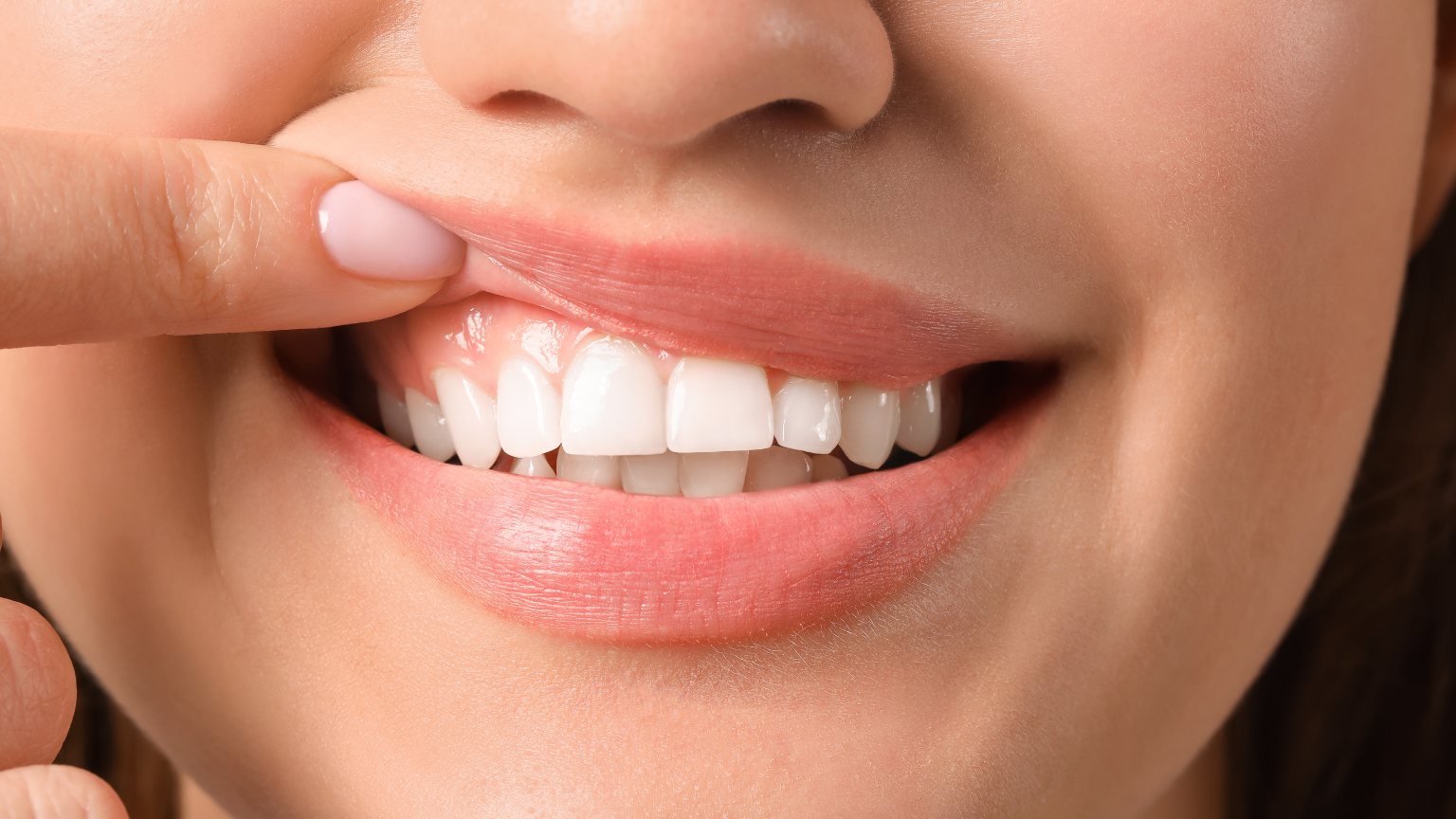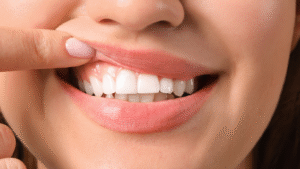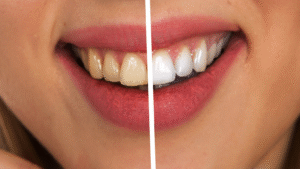Dental enamel is the hardest protective layer of your body, but it’s not invincible. As we get older, enamel undergoes changes that can affect the health and appearance of our smile.
What Is Dental Enamel?
Enamel is the very first line of defense for your teeth. It’s the incredibly hard, white outer layer you see, and it’s the most mineralized and toughest tissue in your entire body. Its main component is hydroxyapatite, a type of calcium phosphate that gives it its remarkable strength.
The primary function of enamel is to protect your teeth from the daily stress of chewing, grinding, and temperature changes. More importantly, it shields the sensitive inner layers of your teeth from the harmful acids produced by food, drinks, and oral bacteria. This protective barrier is what keeps your teeth safe from decay.
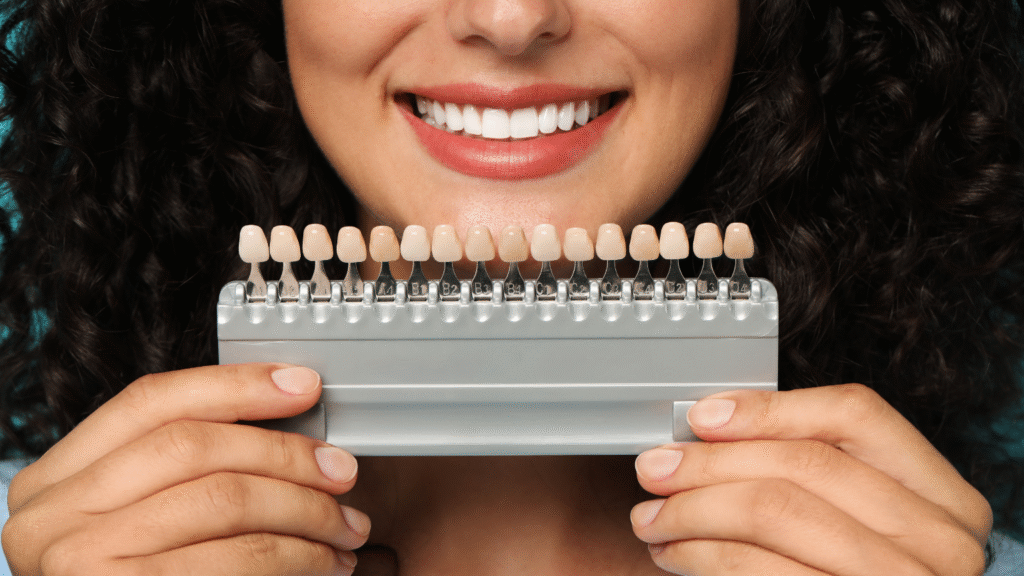
The Evolution of Enamel with Age
Over time, enamel experiences several gradual changes:
- Wear and Tear (Attrition): The simple act of chewing causes natural wear on the surface of your teeth. This process, known as attrition, is inevitable, but good dental hygiene can slow it down.
- Mineral Loss: Constant exposure to acids from food, sugary drinks, and bacterial plaque leads to demineralization. This weakens the enamel, making it more vulnerable to cavities. Fortunately, this process can be counteracted with remineralization, a process where fluoride and calcium help restore enamel strength.
- Increased Sensitivity: As enamel wears down, the underlying dentin (which contains nerve endings) becomes exposed. This can cause pain and sensitivity when consuming cold, hot, or sweet foods and drinks.
Discoloration: With age, enamel can darken due to the accumulation of pigments from food, drinks like coffee and tea, and tobacco use. While not a direct sign of damage, it affects the aesthetic appearance of your smile.
Tips to Protect Your Enamel
Even though dental enamel can’t regenerate on its own, it’s not a lost cause. You can take proactive steps to protect your enamel and maintain a strong, healthy smile for years to come. Making these habits a part of your daily routine is the best investment you can make in your long-term oral health.
- Practice Proper Brushing Technique: Brushing is your first line of defense. Be sure to brush your teeth twice a day, every day, using a fluoride toothpaste. It’s important to use a soft-bristled toothbrush and a gentle, circular motion. Avoid brushing too hard, as this can actually wear down the enamel over time. Focus on cleaning all surfaces of your teeth, including the front, back, and chewing surfaces.
- Floss Daily, Without Fail: Your toothbrush can’t reach the tight spaces between your teeth or below the gum line. That’s where plaque and food particles build up, leading to acid production and enamel erosion. Daily flossing is the only way to effectively clean these areas. Make it a habit to floss at least once a day to protect the enamel in those hard-to-reach spots.
- Be Mindful of Your Diet: What you eat and drink has a direct impact on your enamel. Try to limit your consumption of acidic or sugary foods and beverages, such as soda, sports drinks, citrus fruits, and candies. When you do consume them, consider drinking water afterward to help rinse away the acid and sugar.
Protecting your enamel is a crucial part of your overall health, not just your oral hygiene. By following these simple steps, you have the power to stop enamel erosion in its tracks and prevent future dental problems. Don’t let your smile lose its shine or strength. Take the next step toward a healthier mouth. Call Professional Dental today to book your next professional cleaning and check-up, and get the expert care you need.




